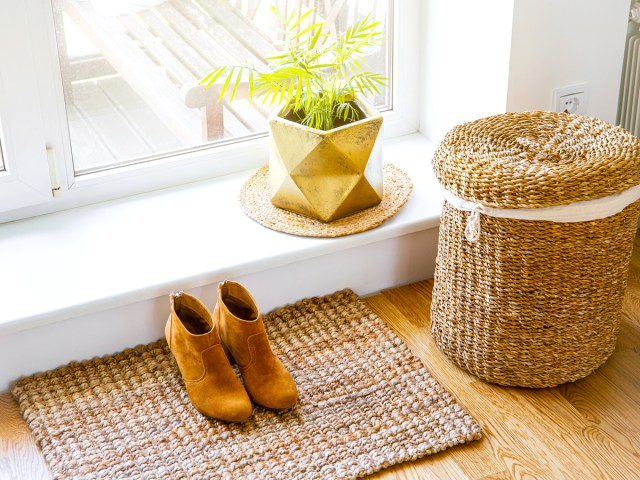While travel provides us with an opportunity to learn about different cultures, traditions, and lifestyles, etiquette can be a minefield. On home turf, we embrace certain behaviors without giving them a second thought, yet the same actions can have surprising reactions when we’re traveling overseas. Take a look at five American customs that may be considered rude abroad so you can avoid landing yourself in hot water.
Keeping Your Shoes on Inside Someone’s Home

In the U.S., many people enter a home without removing their shoes, unless the host specifically asks guests to take them off. However, in some parts of the world, this would be considered a faux-pas. If you’re lucky enough to score an invite into someone’s home while traveling, it’s wise to check the host’s preference. For instance, in parts of Asia, the Middle East, and Europe, it’s customary to leave outdoor footwear by the door. Doing so helps protect floors from stains and scuffs. More importantly, it keeps the home cleaner — scientific studies have shown that we pick up significant amounts of bacteria and other contamination on the soles of our shoes as we walk through city streets. It’s therefore polite to allow the decision to be made by the homeowner.
Eating or Drinking on the Move

At home, taking your coffee to go might be a time-saving habit you rely on during the workweek. However, in some countries, consuming food or drink on the move is far less common and not as widely acceptable. When in Italy, for example, you could find yourself on the receiving end of disapproving looks if you ask for your espresso “porta via” (to go). Coffee is to be savored, never rushed, though drinking at a counter in the morning is commonplace. Meanwhile, in Japan, the practice of tabearuki (eating while walking) can be seen as the height of bad manners. It’s usually considered much more polite to step aside to consume street food at the edge of the sidewalk or beside vending machines.
Dressing Too Casually

Nothing identifies an American overseas as quickly as a baseball cap — in a recent article in The New York Times, British milliner Stephen Jones called the popular headgear “the tiara of America.” Though such hats were first worn on the sports field, they have since become a wardrobe staple in the U.S., worn everywhere from McDonald’s to the Met Gala. But in Europe, unless you’re heading out for a run, wearing a cap might be frowned upon. That’s particularly the case somewhere formal, such as the theater or a fancy restaurant. You’re likely to get a similar reaction when wearing running shoes, sweatpants, or shorts. To avoid drawing attention to yourself, you might wish to dress in a way that’s considered appropriate in the place you’re visiting.
Certain Hand Gestures

As travelers, we often rely on the use of hand gestures to compensate for our linguistic failings. But understanding their meanings is as crucial as learning foreign vocabulary, as gestures can have very different meanings from country to country. For example, Americans might give the thumbs up without a second thought, but in Sardinia, Italy, it can be interpreted as rude. Attempting to hail a cab in Greece with your arm raised and palm stretched wide won’t get you the result you expect. Instead, you’ve just performed a moutza at the taxi driver, which is considered highly insulting.
Clearing Plates in a Restaurant Quickly

It’s common for diners in the U.S. to expect the table to be cleared as soon as their plates are empty. It makes sense for restaurant owners — if table turnover is faster, the number of covers (and, of course, potential tips) can be increased during the course of the night, which boosts income. In a YouGov U.S. survey conducted in April 2024, 58% of respondents felt that occupying a table for an extended period during busy hours was unacceptable. However, to Europeans used to eating out at a more leisurely pace, this rushed approach can feel rude, especially when some of the party haven’t yet finished their meals.
More from our network
Daily Passport is part of Inbox Studio, an email-first media company. *Indicates a third-party property.
















